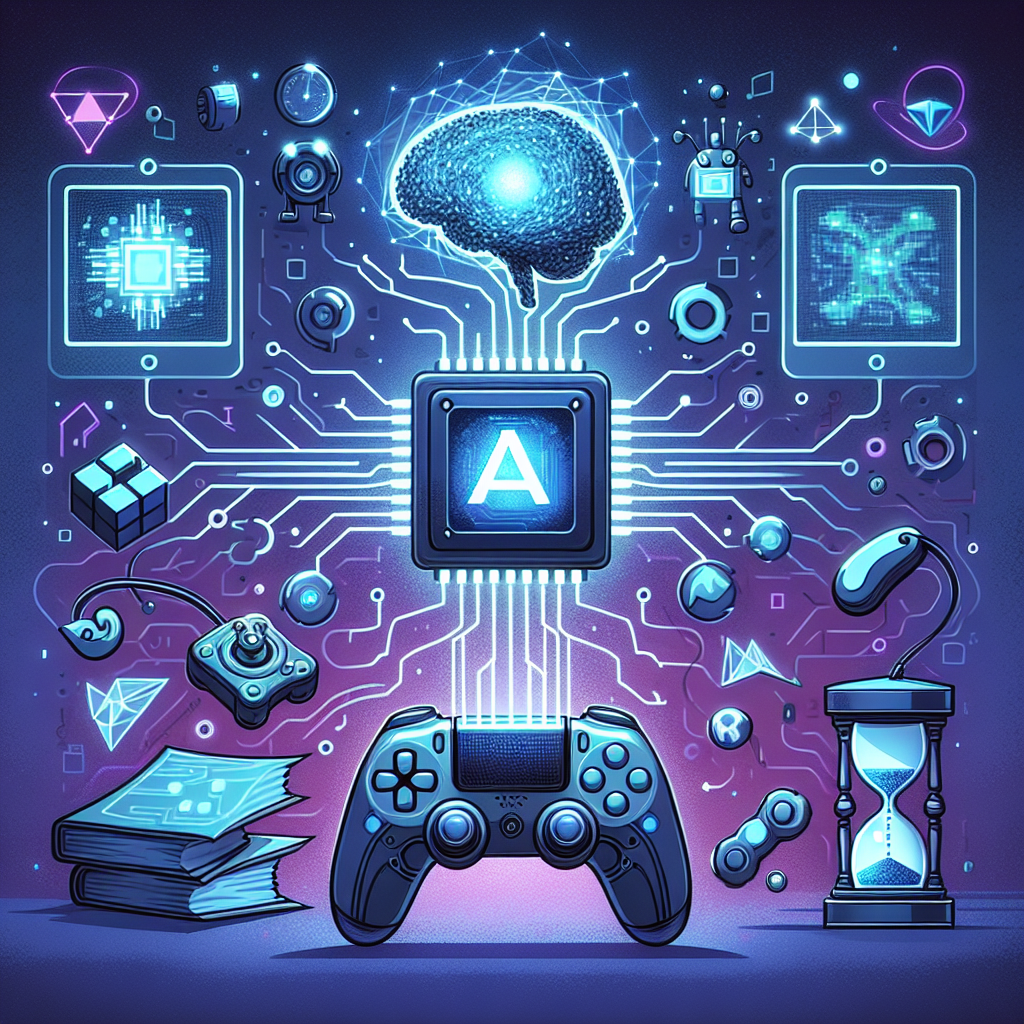The Impact of AI on Game Replayability and Longevity
Artificial Intelligence (AI) has had a profound impact on the gaming industry in recent years. One of the most significant ways in which AI has influenced games is in terms of replayability and longevity. AI technology has revolutionized the way games are played, providing players with more dynamic and challenging experiences that keep them coming back for more. In this article, we will explore the impact of AI on game replayability and longevity, and how developers are leveraging this technology to create more engaging and immersive gaming experiences.
Replayability and Longevity in Games
Replayability and longevity are two key factors that contribute to the success of a game. A game that is highly replayable is one that players can return to time and time again, experiencing new challenges and gameplay each time. Longevity refers to the amount of time that players spend playing a game before moving on to something else. Both of these factors are crucial for creating a successful and sustainable game that will keep players engaged for the long term.
Traditionally, replayability and longevity in games were achieved through a variety of methods, such as procedural generation, branching storylines, and multiplayer modes. However, AI has opened up new possibilities for developers to create more dynamic and engaging experiences that keep players coming back for more.
The Impact of AI on Replayability and Longevity
AI technology has had a significant impact on the replayability and longevity of games in several ways. One of the key ways in which AI has influenced games is through the development of dynamic and adaptive AI systems. In the past, AI opponents in games were often predictable and easy to defeat, leading to repetitive gameplay that could quickly become boring. However, with the advent of more advanced AI technologies, developers are now able to create AI opponents that are more intelligent and challenging, adapting their strategies and behavior based on the player’s actions.
This dynamic and adaptive AI has led to games that are more challenging and engaging, providing players with a more immersive and rewarding experience. Players are no longer able to rely on predictable patterns or strategies to defeat AI opponents, forcing them to think on their feet and adapt to changing circumstances. This increased level of challenge and unpredictability has made games more replayable, as players are constantly faced with new challenges and opportunities to improve their skills.
Another way in which AI has impacted game replayability and longevity is through the development of AI-driven content generation systems. These systems use AI algorithms to generate new content, such as levels, missions, or quests, on the fly, creating a more dynamic and ever-changing game world. This helps to keep players engaged and interested in the game, as they are constantly faced with new challenges and experiences.
AI technology has also been used to enhance the player experience in other ways, such as through the development of AI-driven narrative systems. These systems use AI algorithms to dynamically generate storylines and dialogue based on the player’s actions, creating a more personalized and immersive narrative experience. This helps to keep players engaged and invested in the game world, as they feel like their choices and actions have a real impact on the story.
Overall, AI technology has had a significant impact on the replayability and longevity of games, providing players with more dynamic and engaging experiences that keep them coming back for more. Developers are now able to create games that are more challenging, immersive, and personalized, thanks to the advancements in AI technology.
FAQs
Q: How does AI technology enhance replayability in games?
A: AI technology enhances replayability in games by creating more dynamic and challenging AI opponents that adapt their strategies based on the player’s actions. This leads to a more engaging and unpredictable gameplay experience that keeps players coming back for more.
Q: How does AI technology impact the longevity of games?
A: AI technology impacts the longevity of games by providing players with more dynamic and ever-changing experiences that keep them engaged for longer periods of time. AI-driven content generation systems create new challenges and experiences for players, helping to keep the game fresh and exciting.
Q: How do AI-driven narrative systems enhance the player experience in games?
A: AI-driven narrative systems enhance the player experience in games by dynamically generating storylines and dialogue based on the player’s actions. This creates a more personalized and immersive narrative experience, making players feel like their choices and actions have a real impact on the game world.
Q: What are some examples of games that have successfully leveraged AI technology to enhance replayability and longevity?
A: Games such as The Last of Us Part II, Red Dead Redemption 2, and Middle-earth: Shadow of Mordor have successfully leveraged AI technology to enhance replayability and longevity. These games feature dynamic and adaptive AI systems, AI-driven content generation, and AI-driven narrative systems that create more engaging and immersive gameplay experiences for players.

